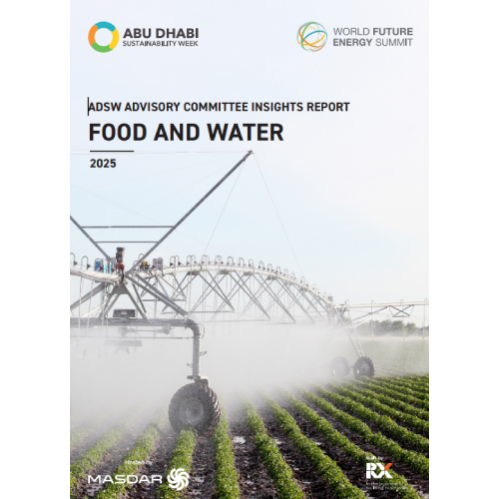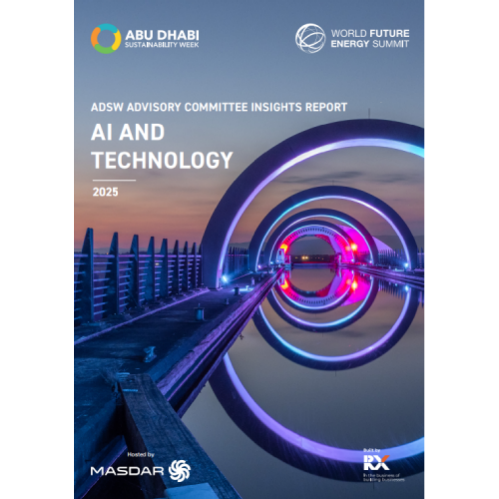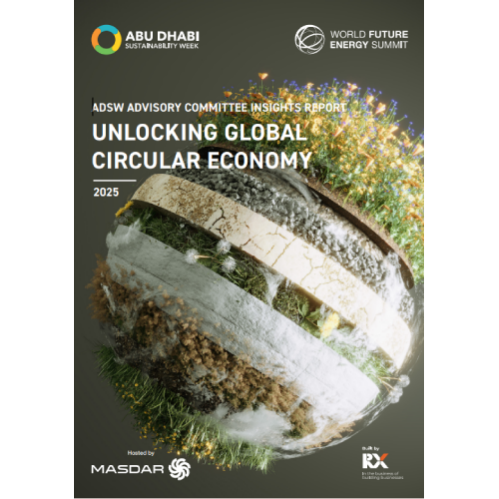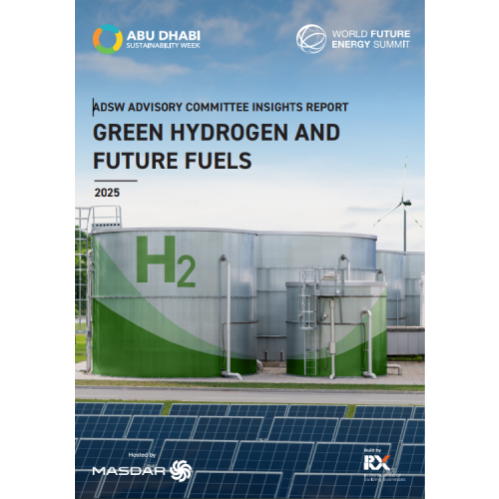This report documents Masdar City’s 15-year progression toward net-zero carbon, outlining its integrated methodology for sustainable urban development. Through detailed case studies, environmental performance metrics, and a structured decarbonization roadmap, it demonstrates how passive design, renewable energy integration, embodied carbon reduction, and lifecycle analysis can deliver commercially viable net-zero outcomes in the built environment.
This report synthesizes discussions from the 2026 ADSW Advisory Committee on Food and Water, examining technology adoption, water pricing reform, desalination and reuse strategies, investment mobilization, and the development of climate-resilient food systems. It presents a structured assessment of systemic barriers and priority actions needed to secure equitable access to food and water amid escalating climate pressures
This report synthesizes insights from the 2026 ADSW Advisory Committee on AI and Technology, examining AI’s role in energy systems, environmental monitoring, healthcare, smart cities, and the sustainability of AI infrastructure itself. It highlights both the transformative potential of AI and the governance, equity, and energy challenges that must be addressed to ensure responsible deployment.
Helen McGeough, ICIS Global Analyst Team Lead for Plastics Recycling talks to long-standing veterans of the European recycling industry about the current state of the market and steps for the future.
This report synthesizes the 2026 ADSW Advisory Committee dialogue on advancing the global circular economy. It examines design innovation, industrial symbiosis, financing mechanisms, policy frameworks, informal sector inclusion, and the prevention of ocean leakage, outlining structural reforms required to transition from a predominantly linear system to regenerative material flows.
This whitepaper examines the dominant trends shaping global renewable energy markets, including solar PV expansion, offshore and onshore wind dynamics, reshoring of supply chains, growth in power purchase agreements, battery storage integration, AI-driven optimisation, virtual power plants, advanced servicing, and grid digitalisation. It presents investment forecasts, structural challenges, and growth opportunities across the renewable energy value chain.
This report synthesizes discussions from the 2026 ADSW Advisory Committee on Green Hydrogen and Future Fuels. It examines the emergence of global hydrogen trade, supply side technological and industrial challenges, demand creation mechanisms, infrastructure and regulatory readiness, and financial models required to scale green hydrogen toward commercial maturity.
This report distills insights from the 2026 ADSW Advisory Committee on Climate and Governance. It examines structural reform of global climate governance, the catalytic role of private and blended finance, operationalization of Article 6 carbon markets, localization and inclusivity in climate decision making, and the governance of emerging climate technologies.








